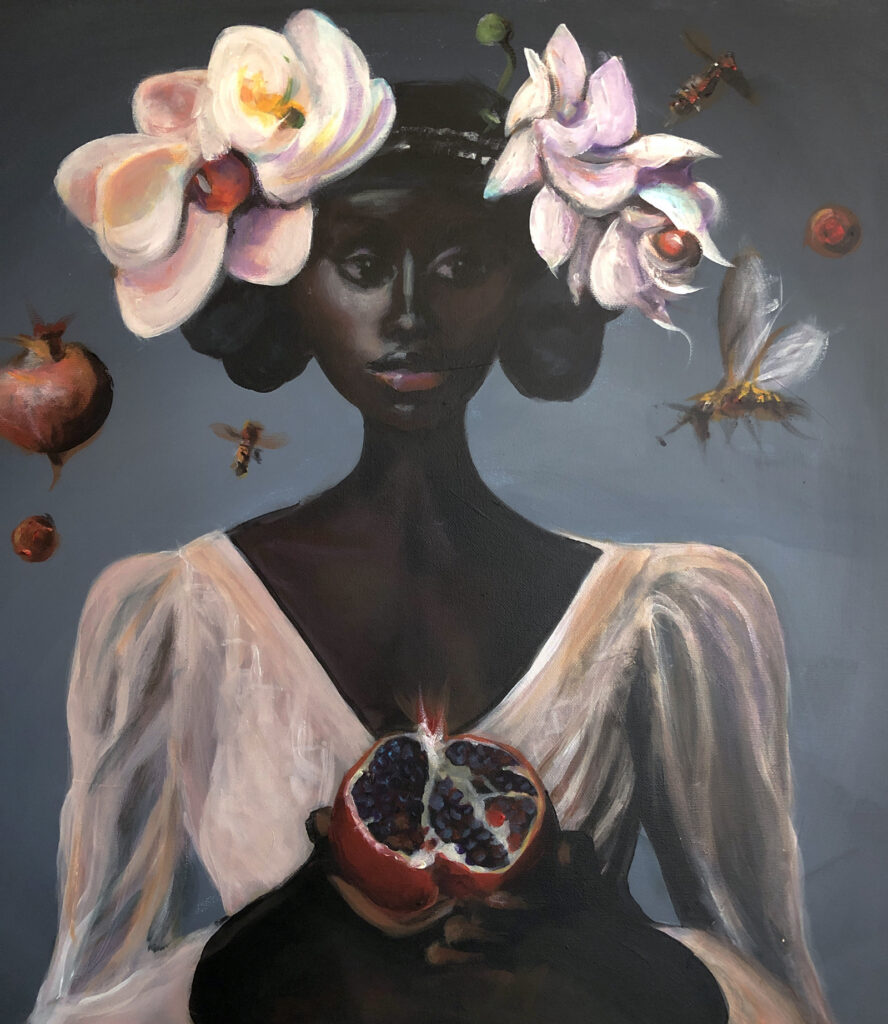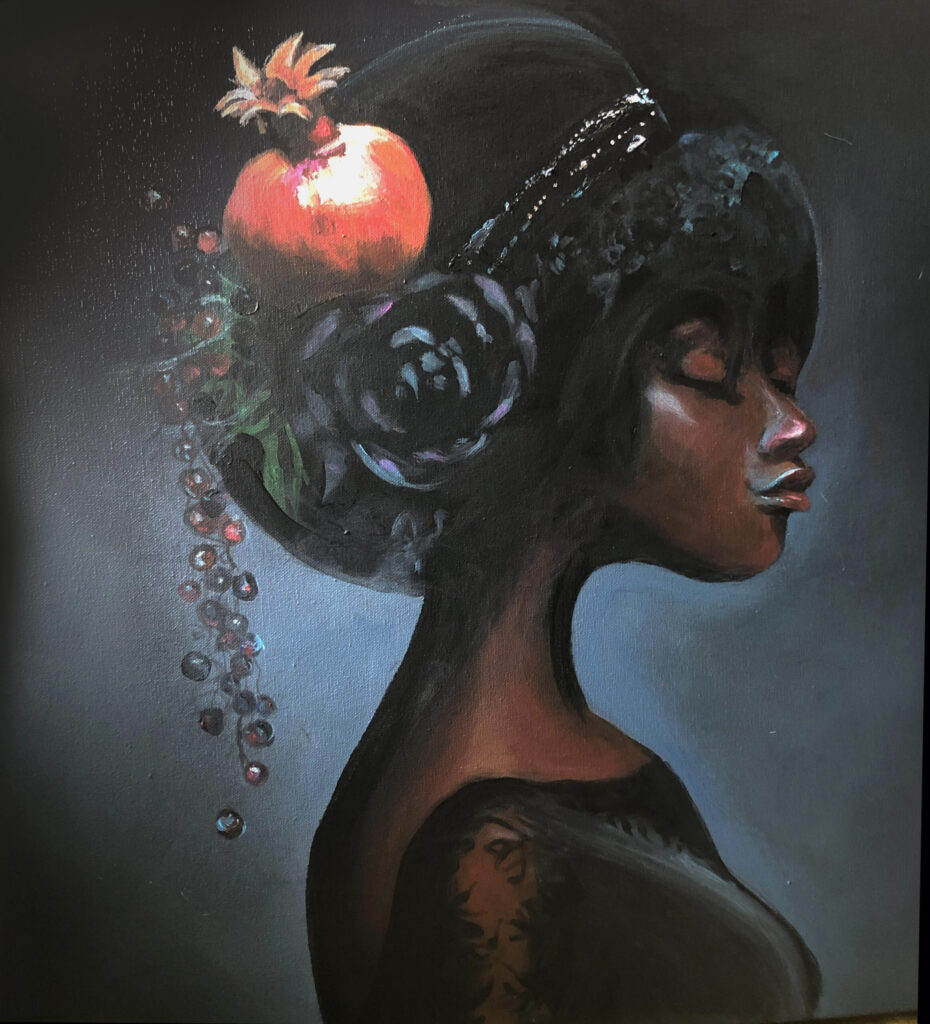AfroDesiac Series


AfroDesiac Series
2024
20 x 20
Acrylic and Oil on Canvas
He May Be Your Man, But He Comes to See Me Sometimes
Trixie Smith
Miss Minnie Lee, from Tennessee
Was known to be quite rough
Anytime, anywhere
She would always do her stuff
Now Sadie Snow, she had a beau
She loved him night and day
Until Minnie shook a shimmy
And stole his heart away
Poor Sadie nearly died, but Minnie only sighed
Then I heard her say
He may be your man but he comes to see me sometimes
And when he's with you, he's always got me on his mind
I ain't no vampire, that is true
But I can certainly take your man from you
My wicked smilе, my wicked walk
I've got the kind of еyes that seem to talk
It's no need of cryin' and no need to weep and mourn
I love your man and I'm gonna take him for my own, my own
I don't mean to be so bold
I just want to get you told
He may be your man but he comes to see me sometimes
He may be your man but he comes to see me sometimes
And when he's with you, he's always got me on his mind
I ain't no vampire, that is true
But I can certainly take your man from you
My wicked smile, my wicked walk
I've got those kind of eyes that seem to talk
It's no need of cryin' and no need to weep and mourn
I love your man and I'm gonna take him for my own, my own
Ain't no need of gettin' rough
'Cause I'm just right to do my stuff
He may be your man but he comes to see me sometimes
She studied at Selma University, moved to New York in 1915, and performed in the vaudeville circuit. She had a distinctive voice and a delightful style. She recorded from 1922 through 1925 for Black Swan and Paramount Records, with her best-known dates resulting in four songs in 1925 with Louis Armstrong in her backup group.
Other sidemen in her career included James P. Johnson, Phil Napoleon, and Fletcher Henderson's Orchestra. Smith did not record from 1925 until 1938, when she headed an all-star jazz group that included Sidney Bechet, Charlie Shavers, and Sammy Price. In 1939, she recorded "No Good Man" with Red Allen and Barney Bigard. One of the classic blues singers of the 1920s, Trixie Smith, worked in New York's theaters as an actress-singer and stayed involved in the music business throughout her life.
She died on Sep 21, 1943, in New York, NY.